6. A Colt is My Passport (1967)
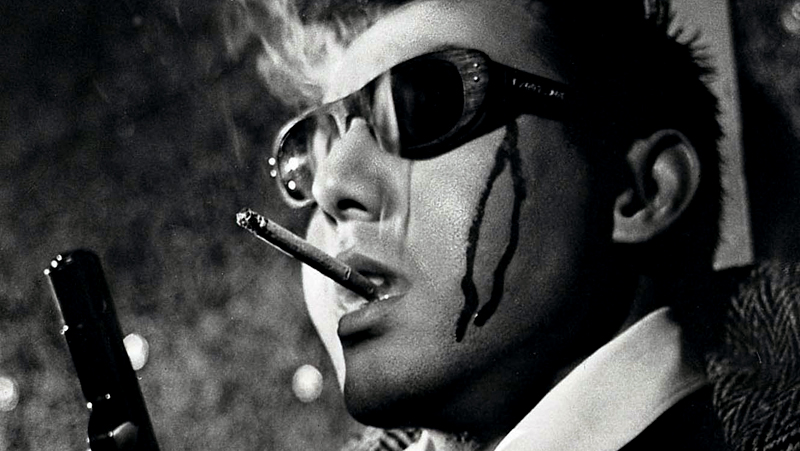
The second movie starring Jō Shishido on this list is an interesting one. It has one of the coolest titles a Yakuza film can have and it’s certainly deserving of it. In one of his earliest roles Jō Shishido is Kamimura, a hitman hired by a Yakuza leader to assassinate a rival boss. After the deed is done, Kamimura and his partner Shiozaki are double-crossed and now they must survive on their own.
Director Takashi Nomura interestingly takes inspiration from many works in the French New Wave as well as Sergio Leone and his spaghetti westerns. The latter is mostly noticeable in the music that has hints of Morricone and in the cinematography with one scene in particular being very recognizably western. As so many films on this list the heavily stylized choices by Nomura make for an incredibly cool picture.
7. First Love (2019)
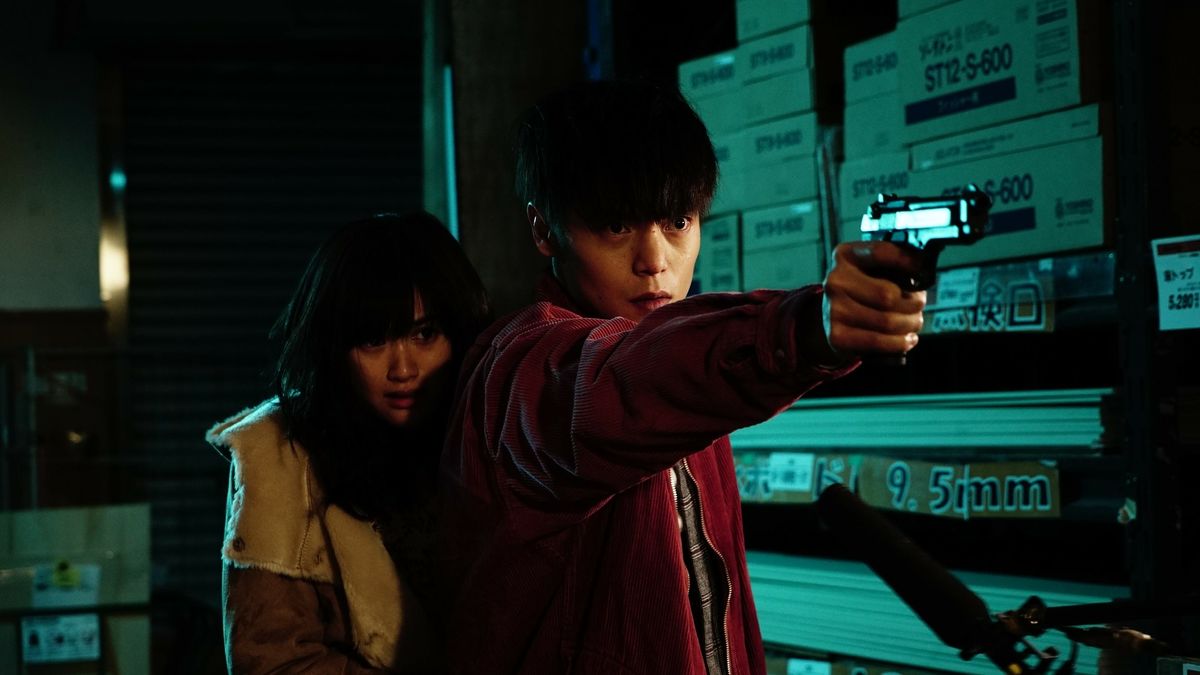
Takashi Miike is another director that couldn’t be left off this list. Although most his Yakuza films are well-known, with Ichi the Killer being his most celebrated, his most recent one has yet to find its audience. Over the years and the many works in all genres he has directed, Miike has gained a dedicated fanbase mostly thanks to his graphic, over-the-top bloodshed and dark sense of humor.
In First Love these classic Miike motifs are well presented. The film follows two troubled youngsters, boxer Leo and Yuri. After a boxing match Leo visits a doctor and hears he has a brain tumor, which makes him view the world from a new perspective. Yuri works as a call girl to pay off her abusive father’s debts. If it couldn’t be worse, she’s also a drug addict. When these two meet their luck doesn’t increase, since they’ll have bad encounters with both the Japanese Yakuza and the Chinese Triads. The dynamic of this troubled duo is a unique one and Miike tackles it in his own interesting way.
8. Blind Woman’s Curse (1970)
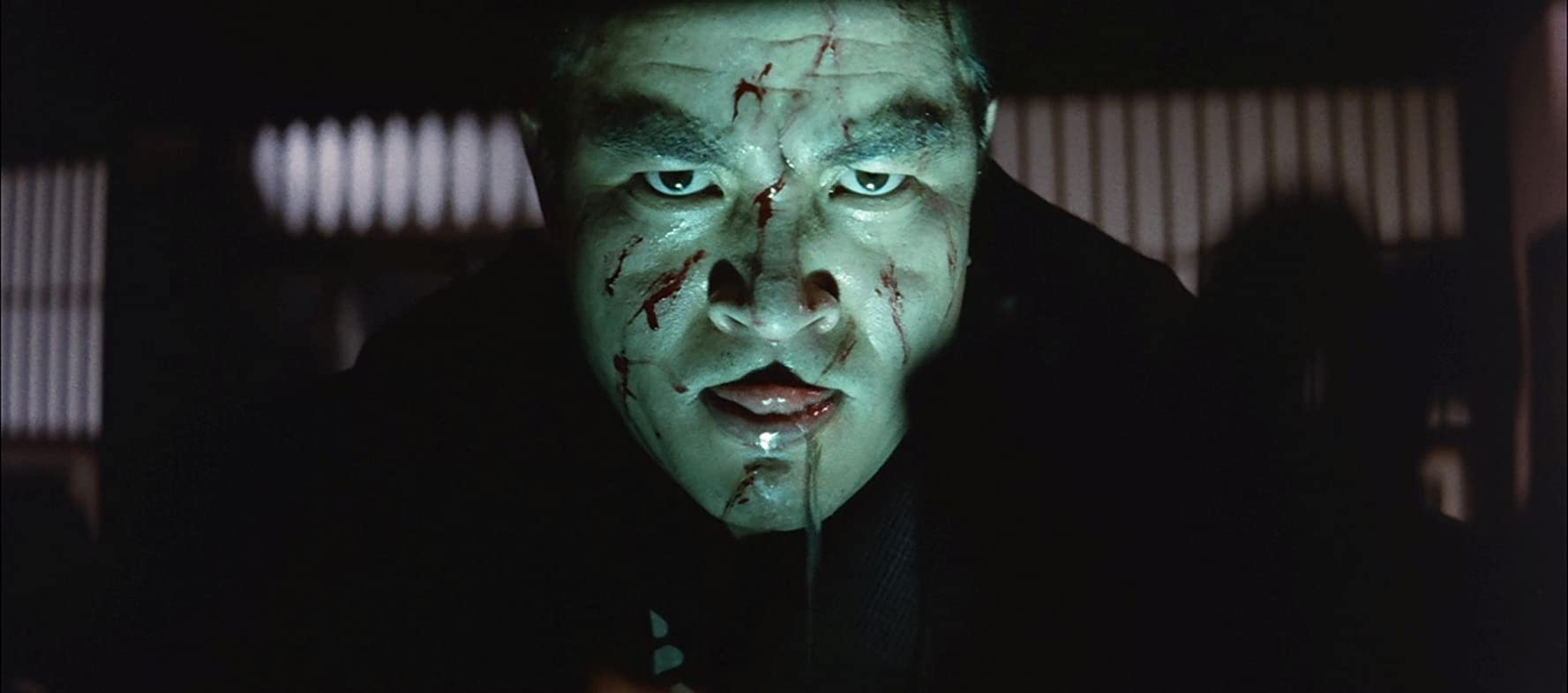
Another entry with Meiko Kaji shining in the lead role. Meiko Kaji plays Akemi, the leader of the Tachibana Yakuza clan. Her gang is known for having dragon tattoos on their backs. Akemi and her gang become the target of a swordswoman with supernatural powers after Akemi blinds her in a duel.
Director Teruo Ishii uses his distinct style to make a Yakuza film that’s a mixed bag of genres, packed with remarkable sequences. The film opens with a classic slow-mo sword fight between rival gangs that is of impressive scale and with that the tone is set. After this the supernatural horror element starts to play out and the storyline following the Yakuza gangs splits into several subplots, making the film go all over the place, but it’s hard to fault Ishii for it, when they’re just so much goofy fun. The only shame is that with there being so many subplots, there’s less screen time for the magnetic Meiko Kaji, but that’s something we’ll have to take for granted.
9. Minbo: The Gentle Art of Japanese Extortion (1992)
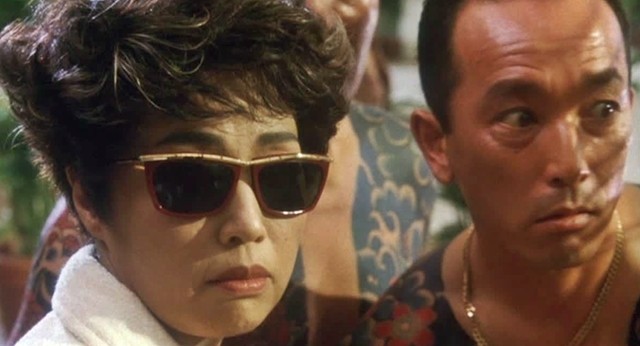
This might be the one Yakuza film on this list that doesn’t portray them as cool and gentlemen-like. Instead they’re obnoxious, loud bullies that extort and cheat the honest man. When an old hotel gets frequent visits by the Yakuza, the staff calls in the help of Mahiru Inoue, a lawyer who’s an expert in dealing with Yakuza. Together with Mahiru the staff of the hotel starts to fight back against these bullies in a hilarious way.
Juzo Itami might be one of the most underrated directors Japan has to offer. His filmography contains some brilliant gems that have close to no ratings on film sites like IMDb and Letterboxd. Tampopo is the one exception that has gained a decent following, but films like The Last Dance, Supermarket Woman, and Minbo deserve a lot more love.
Sadly, Itami’s journey as a filmmaker came to an end way too soon as he was found dead at the feet of his office building, with a suicide note left on his desk. However, there are speculations his dead was not self-initiated at all and instead the Yakuza had a say in this. It’s known the Yakuza paid Itamo a visit after being unhappy about the way they were portrayed in this very movie, so the rumors have some back-up. The real truth might never come to the surface, but what is certain is the fact that his journey ended way too soon. He left us with a great collection of art, which should be seen by many more.
10. Drunken Angel (1948)
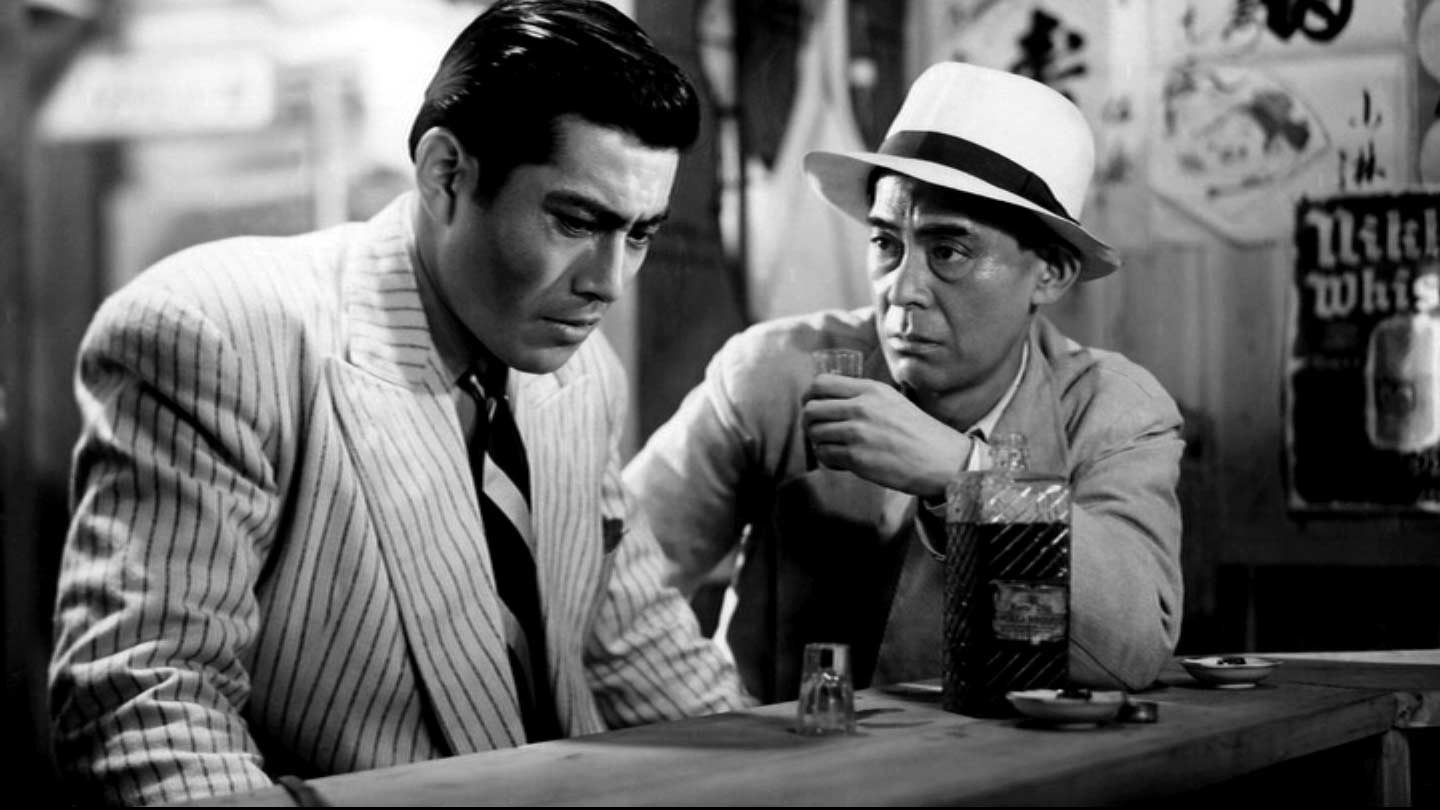
Briefly touched upon in the introduction of this list, Drunken Angel definitely deserves its own spot. As one of his earliest works, it’s already clear that Kurosawa has a ton of talent and a great eye for drama. In Drunken Angel Kurosawa also began his long running collaboration with actor Toshiro Mifune.
In post-war Japan, Takashi Simura portrays the alcoholic doctor Sanada, whom treats the young small-time Yakuza gangster Matsunaga (Mifune) after a gunfight. Here the doctor diagnoses the gangster with Tuberculosis and when he goes into treatment, the two form an interesting friendship.
It’s interesting to see that with Drunken Angel Kurosawa starts the post-war Yakuza genre, but it’s a very different film than the ones that follow. Rather than having the Yakuza storyline on the foreground he only touches on it and instead focusses on deeply human emotions. Both the struggle with alcoholism and the struggle with fighting Tuberculosis are very touching and make this much more than just a Yakuza film.